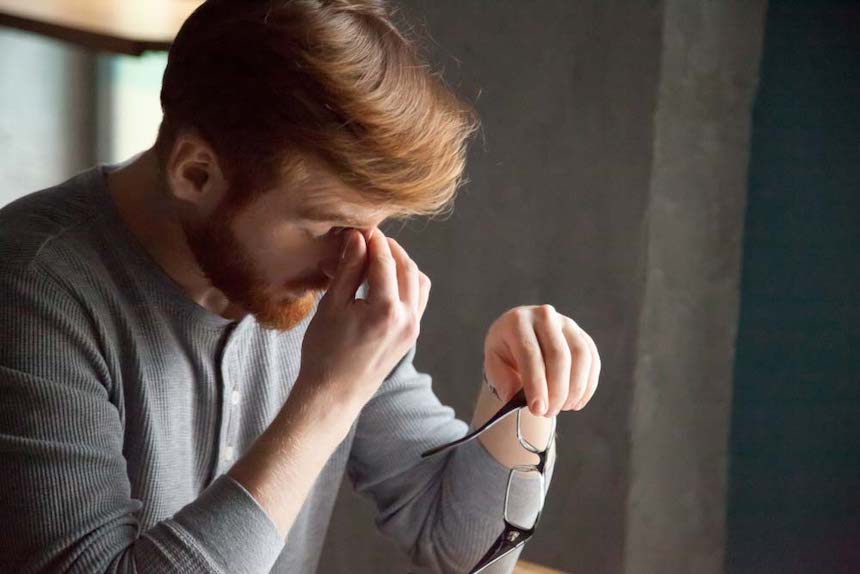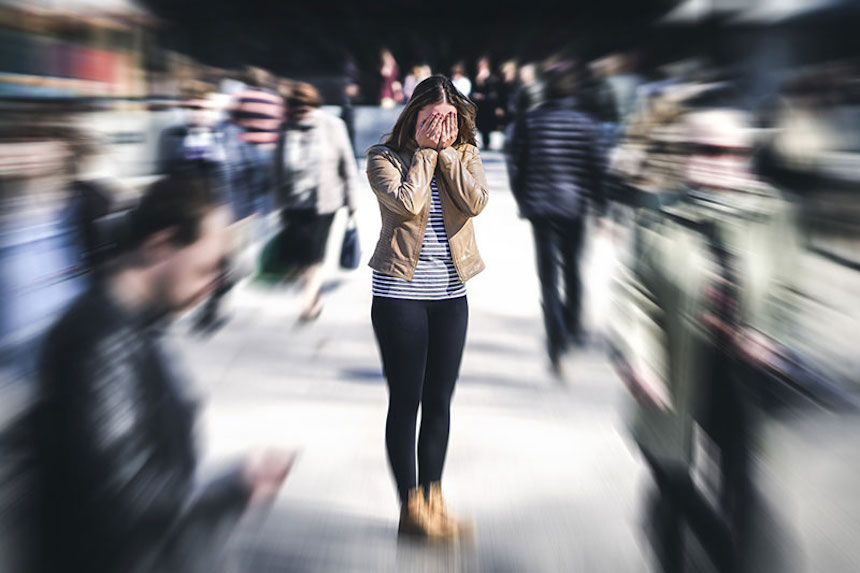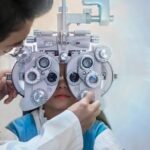
You probably think that visual problems are always caused by physical abnormalities, but it is possible to have blurred vision due to a mental health issue. Before you start panicking about your eyesight, look into some of the mental health conditions that can affect your vision, and see if any of these could have something to do with the blur. In most of these cases, the underlying issue may be of more concern than the fading eyesight, but recognizing that your vision problems aren’t caused by an additional physical issue on top of a mental health problem will help you reduce stress and understand how to cope with the problem.
Post-Traumatic Stress Disorder
After one or more stressful events, an individual can develop post-traumatic stress disorder. This condition causes an assortment of problems such as anxiety attacks or anger issues, but it can also affect an individual’s vision. The changes in the brain’s chemistry along with sleep disturbances can cause blurred vision that makes it difficult to read books or work on a computer. This could be the source of your vision problems if they only started after a stressful event and coincide with other elements of stress and mental trauma.
Depression

Many people with depression talk about the world seeming ‘gray,’ and as it turns out, this isn’t just a psychological feeling. An individual with depression may not see colors in a normal way, or alternatively, the individual will have a problem with depth perception. When someone is depressed, the chemicals in the brain change and this affects the visual center of the brain. Rather than seeing the sky as a vivid color of blue or seeing the bright green leaves on trees, the depressed person will see more tinges of gray and blue and fewer contrasts.
Anxiety

Yearly eye exams from optometrists are essential to finding visual problems in the earliest stages. In addition to physical abnormalities of the eye, an individual who has chronic anxiety can experience blurred vision as a result of the changes in the body’s cortisol levels. In addition, when someone is taking medication for anxiety, a side effect from the medication can cause problems with visual acuity. Talk to both your optometrist and therapist about the possible solutions to anxiety-caused vision problems. If you can, find some tips to reduce stress that work for you and that you can incorporate easily into your schedule. And of course, try not to stress about your eyesight problems, as that can make them worse.
Phobias
There are numerous types of phobias, including a fear of germs or an inability to leave home. When an individual is experiencing stress, it is possible to have vision problems. The reaction from a phobia can lead to hyperventilation or fainting spells. In addition, a severe attack from a phobia can cause someone to have an increased heart rate or high blood pressure that can change the condition of the eyeballs. If your vision problems are accompanying a phobia or severe fear, using methods to de-stress and overcome fear can help. In this case, you will clearly have larger anxiety than just diminishing eyesight, but being able to identify a physically-manifesting symptom as a presentation of an existing phobia will help you calm down and not overreact to the issue.
Suicidal Ideology
While we assume that most ‘vision’ problems relating to mental health are psychological, it turns out that our mental state does physically affect our vision as well. An individual with suicidal thoughts or ideologies may have visual problems caused by the drastic changes in thinking patterns. The individual may develop literal tunnel vision, leading to a narrow range of vision. An individual who is losing vision from physical health conditions can also have changes in thinking due to social isolation and the inability to live a normal lifestyle. As with many of the mental health issues stated above, there will be more severe things to worry about than just the loss of vision. But being able to understand why your body is reacting in the ways it is will help you identify and realize the mental health issues underlying your or someone else’s failing vision.
How to Solve Visual Problems
Treatments from a psychologist can alleviate your mental health issues, and if you are having a side effect from the medications required for depression or anxiety, then you can ask your healthcare professional to change your medication. It helps to be aware of other causes of visual problems so that you don’t assume that you have physical problems on top of your mental health concerns. As with most aspects of wellness, health is interconnected, and your mind and body affect each other. Talk to a mental health professional, and know that you are not alone in dealing with these issues.
- Understanding Different Types of Oral Surgery - April 9, 2024
- The Power of Nature: Effective Alternatives for Managing Tooth Pain - April 7, 2024
- 5 Ways To Make Your Home More Accessible - April 4, 2024






